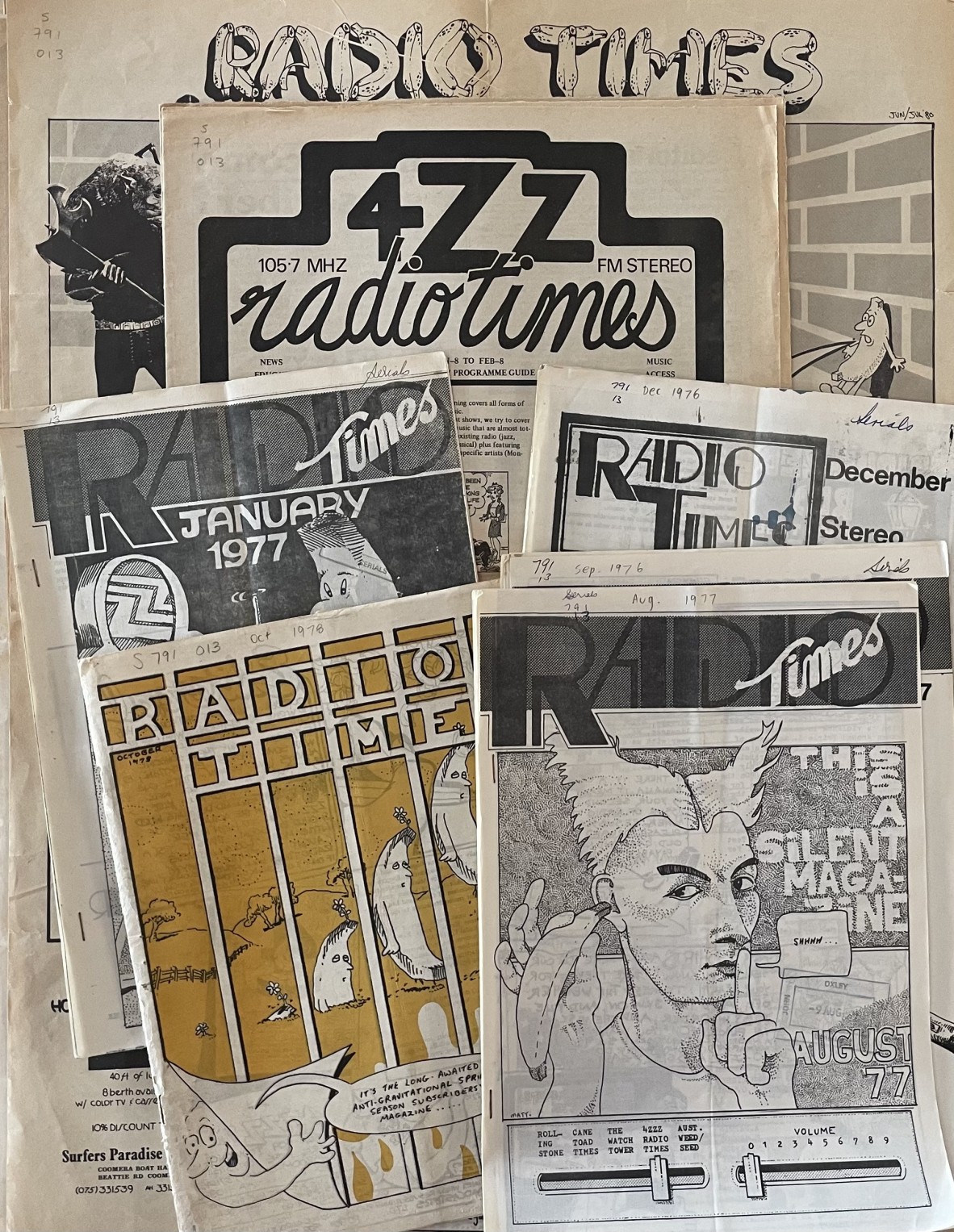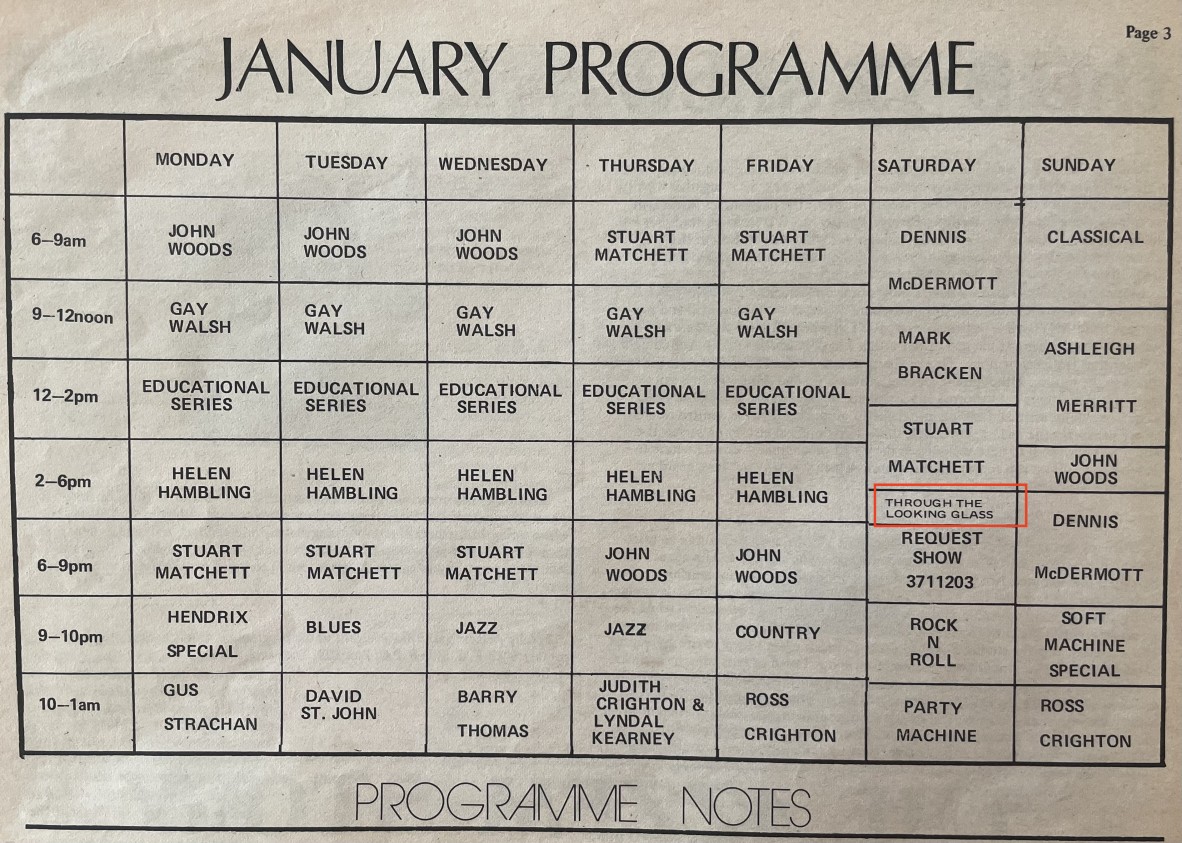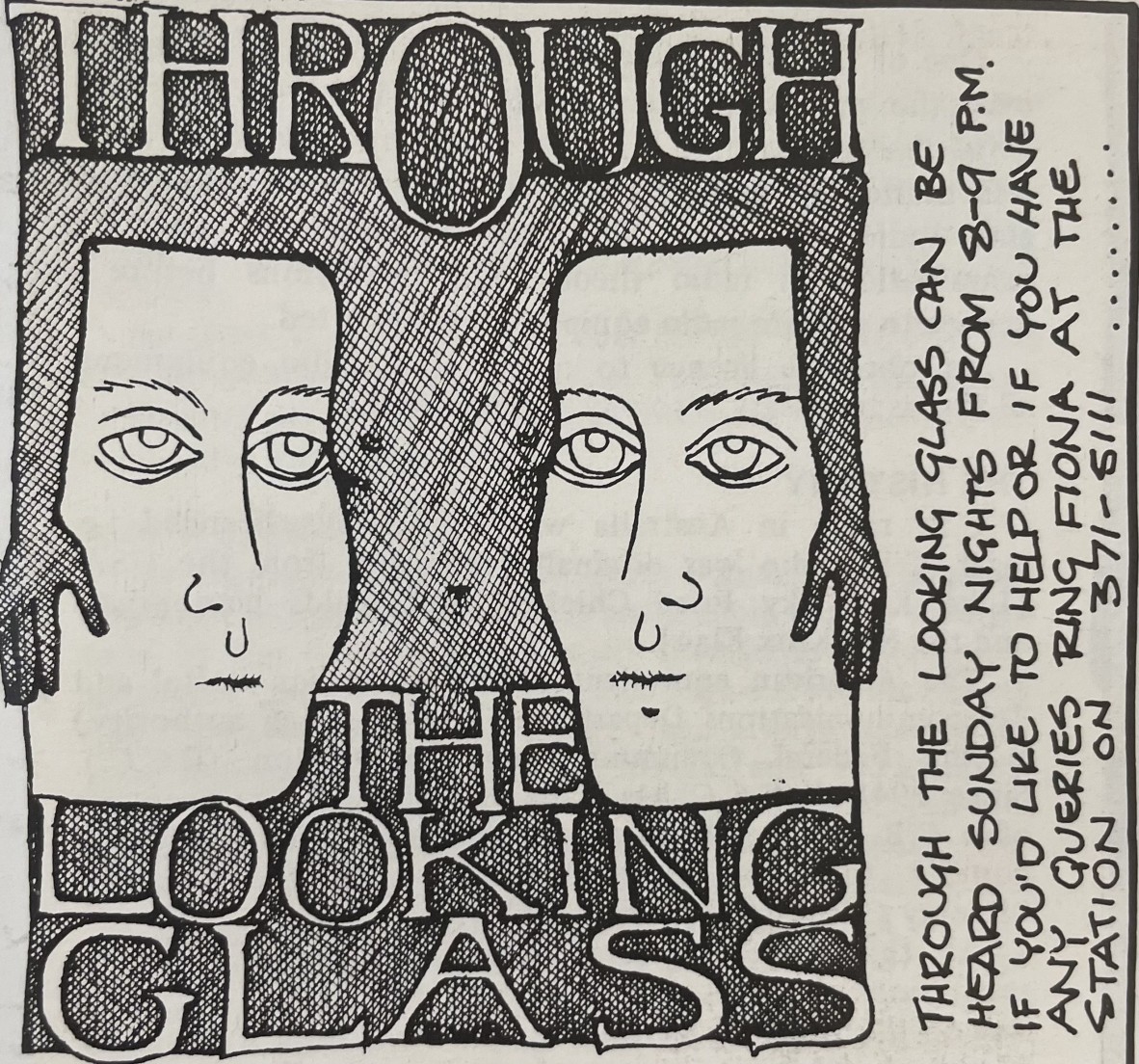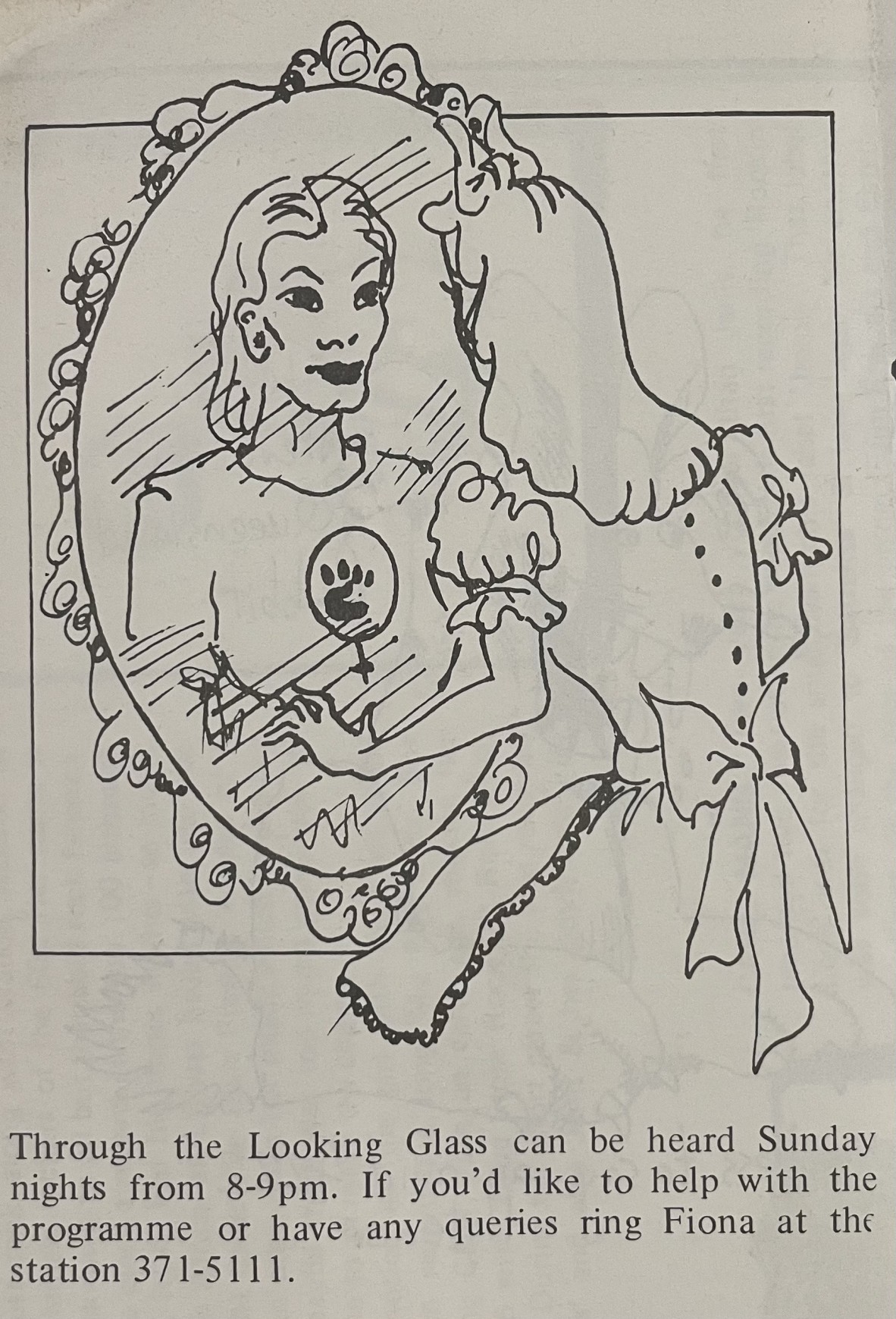Finding feminist voices in the early years of Queensland community radio
By Associate Professor Heather Anderson, 2024 Rainbow Research Fellow | 7 March 2024
This blog was written by 2024 Rainbow Research Fellow, Associate Professor Heather Anderson.
March 8 marks International Women’s Day (IWD) – a time for collective celebration and global activism in the ongoing fight for equality for all women, regardless of sexuality or birth-assigned gender. Inspire Inclusion is one of the official themes for IWD 2024, and – serendipitously - an overarching aim of my 2024 Rainbow Research Fellowship project, Radio rebels: highlighting the contributions of women, trans and non-binary people to the history of Queensland community radio. By learning from, and adding to, the John Oxley and State Library of Queensland collections, Radio Rebels seeks to discover and share the untold stories of the women, trans and non-binary people of the Queensland community radio sector.
Given the conservative political climate of Queensland in the 1970s, it’s not surprising that activists in the Sunshine State played an important role in the establishment of Australian community radio. Indeed, the history of community radio in Queensland can be mapped against the political, social and cultural contexts of its time, developed as part of the strong democratic social movements of the late 1960s/early 1970s, and as a direct response to a perceived lack of media diversity in the State, under National Party rule. While much of this early advocacy occurred in Meanjin/Brisbane through the establishment of the first Queensland community radio station 4ZZZ, in 1975, other stations across the State (e.g. Triple T, Townsville/Bindal & Wulgurukaba country) drew on ‘the 4ZZZ model’ when applying for their own initial licenses. More so, 4ZZZ founders were not merely lobbying for their own license, but for the creation of a legislated third tier of ‘community broadcasting’. As a result, there are now 70 community radio stations across Queensland and the Torres Strait, including remote Indigenous broadcasting services. This sector is recognised as a vital cultural resource, enriching the Queensland mediascape by providing a platform for under-represented voices, music and ideas, a training ground for media professionals, and – in regional and remote areas – often the only source of local news, information and entertainment.
While the history of Queensland community radio has been somewhat documented, these stories are dominated by the voices of men. Less apparent in this history are the perspectives of women, trans and non-binary people, whose invaluable community radio advocacy was – and still is - often ‘behind the scenes’. The involvement of even now-high-profile women such as Marian Wilkinson and Carole Ferrier, whose lobbying was integral to the establishment of Australia’s community radio sector, is underplayed in the histories of 4ZZZ and the sector more broadly. My project, Radio Rebels, takes this concern as a starting point and aims to uncover the stories of women, trans and non-binary people from within the collections already housed at the State Library of Queensland, and contribute new materials to grow these collections.

A collection of early Radio Times magazines. Radio times. (1975). 4ZZZ-FM, John Oxley Library, State Library of Queensland.
In the first stage of my research, I’ve focused on the John Oxley Library’s collection of Radio Times, 4ZZZ’s magazine/newsletter, which now publishes annually but originated as a monthly text, mailed out to all station subscribers. Earlier versions of Radio Times included a program guide that provides us a candid glimpse into the content broadcast on the station over the years. Through this guide, we see the emergence of women-specific programming in January 1976, in the form of Through the Looking Glass, an hourly show that initially filled the airwaves on Saturdays between 5:00pm and 6:00pm. In a separate article in the same edition (Radio Times, Jan 8, 1976, p.7), Through the Looking Glass is described as:
...an experimental feminist-oriented program which aims to discuss prevailing attitudes and expectations of importance to women ... Each program is a collective, cooperative effort between several women, without an authority figure ... The on-air effect of our co-operative method is (we hope) to break down the concept of the authoritative “disk jockey” concept of the all-knowing figure behind the microphone ...

The first appearance of Through the Looking Glass in 4ZZZ’s schedule, as published in the January 1976 edition of Radio Times. 4ZZZ-FM. John Oxley Library, State Library of Queensland.
Women-specific programming has maintained a continued presence on 4ZZZ since this time, but it wasn’t all smooth sailing for feminist programming at the station. A 1977 article in Australian academic journal, Hecate, written by the Brisbane Women’s Media Collective, outlines a scathing critique of the radio station at that time, claiming:
over time, women were gradually forced out of their position of para-equality on the station until, at the present time, they are little more than fringe dwellers on its periphery
Letters to the Editor in Radio Times circa 1976/77 also point to discontent with the 4ZZZ’s perceived focus on rock music rather than grassroots discussions. Through the Looking Glass and the educational series, In Depth, were considered, by some, to be outliers in the otherwise male-dominated, ‘homogenised Stereo Rock’ vibe of the station. A Letter to Editor from Caroline Mann of Coorparoo, in the October 1976 edition of Radio Times (p.6), encapsulates these feelings when they write:
Have your rock some of the time, but I’m sure even you will get sick of it all of the time, eventually. If you are supposed to be an alternative station what is wrong with alternative songs – women's songs, radical songs, protest songs, environmental songs, some of the time, as well as rock
Nevertheless, Through the Looking Glass prevailed, slowly transforming into its contemporary, Megaherzzz, now described on the 4ZZZ website as an intersectional feminist program that amplifies various marginalised communities.

Through the Looking Glass artwork circa 1977. Radio times. (1975). 4ZZZ-FM, John Oxley Library, State Library of Queensland.

Through the Looking Glass artwork circa 1977. Radio times. (1975). 4ZZZ-FM, John Oxley Library, State Library of Queensland.
Considering the wealth of feminist, queer-friendly and trans-supportive programming on 4ZZZ in 2024 (see, for example, Tranzmission, Dykes on Mics and Queer Radio), it's difficult to imagine a time when women, trans and non-binary folk struggled for inclusion at Queensland’s oldest community radio station. Given the struggles faced by feminist broadcasters in the early days at 4ZZZ in ‘the big smoke’, how did women's issues fair at other stations in regional and rural Queensland, as the sector grew in the late 70s and into the 1980s? This is one question I hope to answer during my Rainbow Research Fellowship.
Through Radio Rebels, I’m seeking out a more inclusive and broader understanding of the ongoing legacy of the Queensland community radio sector, which – along with 4ZZZ – approaches its fiftieth anniversary next year. It’s more important than ever to “Inspire Inclusion” in the telling of its histories – if you have a story to share, please do get in touch.
Associate Professor Heather Anderson, 2024 Rainbow Research Fellow.
Other blogs by Heather Anderson
- Celebrating Dykes on Mykes (4ZZZ) on International Lesbian Day
- Read other blogs by previous Rainbow Research Fellows.
Dr Heather Anderson's Research Reveals talk.
Comments
Your email address will not be published.
We welcome relevant, respectful comments.